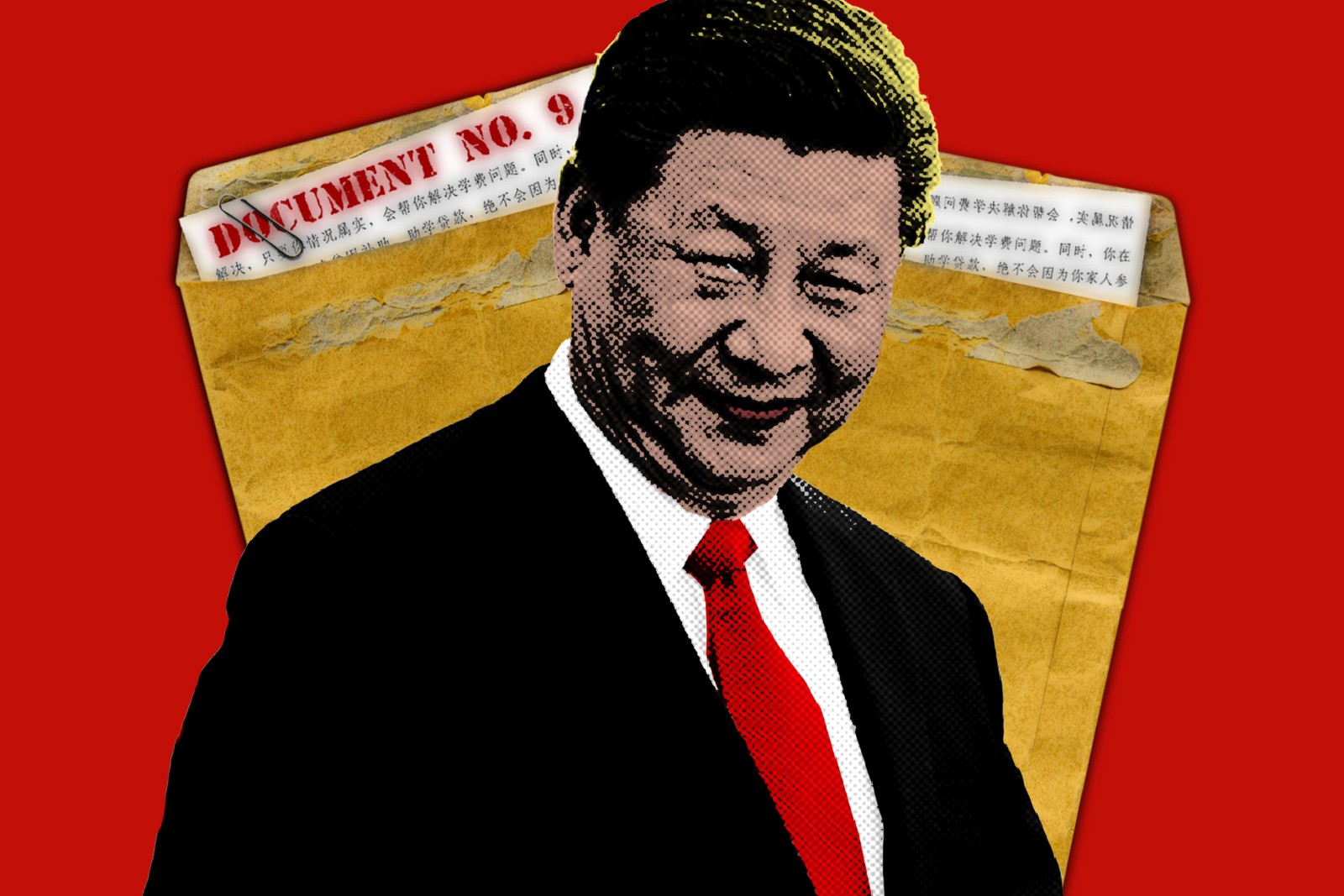
10 Years Later: Document No. 9 and the Decline of U.S.-China Relations
If you ask most Americans their opinion of the People’s Republic of China, most will give you an answer ranging somewhere between “bad” and “awful.”
U.S.-China relations today are unquestionably at their worst since formal relations were established in 1979. Amid the perpetually shifting sands of geopolitics and catchy news headlines, it is important to reflect on the fact that prior to a leaked Chinese Communist Party memo, this was far from the majority opinion. Just 10 years ago, many prominent American politicians, pundits, and intellectuals looked at the future of U.S.-Sino relations with a twinkle of confidence and optimism.
And why not? After all, Washington had seemingly achieved the unthinkable; converted China – a hostile communist adversary – into a de facto ally, defeated the USSR, and popularized liberal internationalism.
The ghosts from the battlefields of Korea, Mao’s Red August, and Tiananmen Square did not dissuade successive generations of Washington policymakers in both parties from maintaining a carefully managed and productive relationship with Beijing. There was an implicit consensus on both sides of the Pacific that the horrors of the past should not impede the trajectory of a bright future so long as the assumption of ever-increasing trade ties held.
In 1999, while running for the presidency, George W. Bush succinctly encapsulated this vision in a campaign speech, “Trade freely with China and time is on our side.” Washington optimistically bet big on trade as a relationship stabilizer and enticement toward liberal reform when it helped Beijing ascend to the World Trade Organization in 2001.
This optimism still held steady when, in November 2012, Xi Jinping replaced Hu Jintao as president and was widely lauded as a reformer who would continue China’s peaceful rise toward openness, reform, and international integration like his predecessor.
Then, reality came knocking.
In September 2013, a leaked internal Chinese Communist Party (CCP) memorandum titled “Communiqué on the Current State of the Ideological Sphere” irreversibly shattered the comfort of the status quo. This memo which came to be known as “Document No. 9,” explicitly identified liberalism, constitutional democracy, and the free press as existential threats to the CCP’s rule and urged immediate countermeasures.
This striking disclosure demonstrated not only that Washington’s trade-based hopes for steering China’s future were woefully misguided, but also that Xi Jinping was going to be a very different leader than policymakers had grown comfortable dealing with since 1979. The U.S. and China always had disagreements on core issues such as Taiwan, human rights, and democracy. This memo, however, dragged these differences kicking and screaming out of the closed-door private meetings and into the light of public discourse.
Document No. 9 broke the news that despite Washington’s best efforts, China not only remained hostile to Western liberalism, but it was also actively waging a crusade against it. As a result, the foundation of diplomacy, compromise, and integration built over three decades began to fall under increased scrutiny.
Seemingly in an instant, the past became alive. Was Washington foolish to overlook China’s past misdeeds as aberrations of a nation undergoing internal reform? Was trade going to be enough to keep the peace? These unwelcome and unresolved questions created a vacuum in American politics. By 2016, this void was filled by fringe conservative economic nationalists who framed China as an exploitative adversary that took advantage of a naïve and overly idealistic Washington policy establishment.
Economic nationalists seized the moment and launched a crusade of their own to curtail U.S.-China economic interdependence. Document No. 9 planted kernels of doubt in U.S.-China relations and right-wing economic nationalism made them pop. The core differences between Washington and Beijing’s political-economic systems are now consequently regarded as a mainstay of American political discourse.
10 years after the fact, Document No. 9’s revelations are seemingly obvious to even the casual American observer. A recent poll shows a record 83% of Americans view China unfavorably, a nearly 30% increase from when Xi assumed power. Beijing’s dismantling of Hong Kong’s democratic institutions, operation of illegal police stations on U.S. soil, and repeated attempts to subvert American collegiate institutions are but a few examples that have served to further sour American perceptions of Xi’s China.
Document No. 9’s legacy continues to cast a long shadow over the American mind as we enter what the Biden administration’s National Security Strategy terms an era of “strategic competition” with China. The past once ignored by Washington now haunts nearly every discussion of consequence. Today, Washington diligently works to preserve its few remaining areas of cooperation with Beijing, while simultaneously preparing for a protracted struggle.
Unfortunately, no matter what marginal breakthroughs are achieved in bilateral summits, deep mutual skepticism fundamentally underpins the structure of U.S.-China relations and serves as a formidable barrier to reversing tensions. Document No. 9 opened a national dialogue on how to best manage the problems that extend from Washington and Beijing’s core differences. While the answer to this question remains nebulous, Xi’s hostility toward the U.S. and its liberal values is clearer than ever.
The author’s views and interpretations of fact are his own and not reflective of those held in whole or in part by the United States government.
